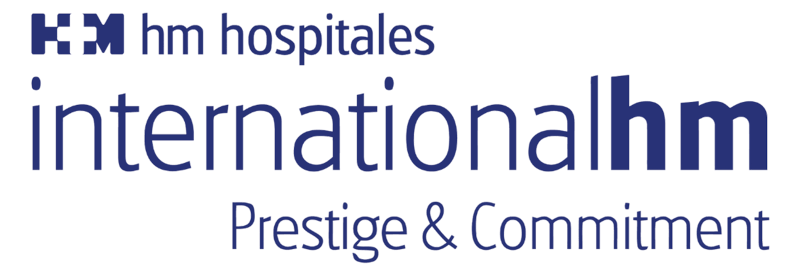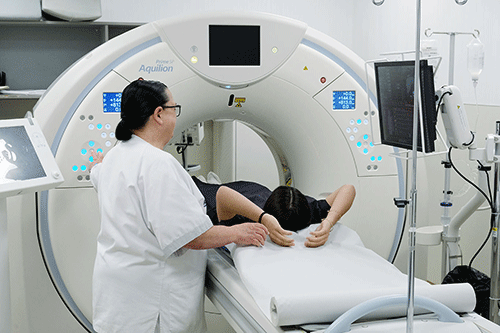HM Nou Delfos Hospital launched its Stroke Code protocol in 2022 and since then, the number of detected cases has increased, enabling immediate treatment of cerebrovascular events at an early stage. This rapid response improves survival rates and reduces the likelihood of stroke-related disability. According to the Stroke Code Report from HM Hospitales’ flagship centre in Barcelona, 118 cases have been treated with a 99% survival rate within the first 72 hours of admission, representing a 22% increase in activity compared to the previous period.
Surviving the first 72 hours is critical for stroke patients, as it is the period of highest risk for mortality or clinical deterioration. After this phase, patients are typically transferred to a private hospital room to continue treatment and begin rehabilitation.
Stroke is considered the leading cause of disability in Europe and one of the main causes of death. In Spain, nearly 120,000 people are affected each year, with a mortality rate of around 21%. However, 90% of cases could be prevented through healthy lifestyle habits. While most strokes occur after the age of 65, a 25% increase in cases has been recorded among people aged 20 to 64.
To improve survival rates, it is vital that stroke patients receive care within six hours of symptom onset — ideally within two. The Stroke Code protocol at HM Nou Delfos is based on a multidisciplinary and coordinated network that guarantees access to necessary therapies, enabling reperfusion by removing the clot and reopening the blocked artery. As a leading reference in private healthcare in Catalonia, HM Nou Delfos ensures access to treatment regardless of a patient’s location or how they enter the healthcare system.
Dr Beatriz Chavarría, neurologist and Stroke Code coordinator at HM Nou Delfos, explains: “We have developed an action protocol adapted to our staff and facilities to optimise treatment and, above all, reduce response time. The first step is to stabilise the patient and confirm the diagnosis. Within minutes of arrival, patients undergo a CT scan and, if stroke is confirmed, we have 24/7 access to a multimodal CT scanner. This technology is currently one of the most effective tools for determining the appropriate treatment, as it provides detailed insight into the patient’s cerebrovascular condition. The initial scan, which does not require contrast, helps to rule out haemorrhagic origin or stroke-mimicking lesions, and detect early signs linked to the clinical symptoms.”
73% of cases are ischaemic strokes
The implementation of the Stroke Code has led to greater detection of cases. According to HM Nou Delfos’ activity report, from 1 March 2024 to 30 May 2025, 118 cases were treated — a 22% increase year-on-year. Quick and accurate diagnosis and immediate response are key to improving survival, as evidenced by the 99% survival rate within the first 72 hours.
73% of patients admitted through the Stroke Code presented with an ischaemic stroke — caused by acute blockage of a cerebral artery, leading to restricted oxygenation in the affected brain area.
Another key insight from the report is that 56% of those treated were women. The median age was 75, and the most prevalent risk factors were high blood pressure and smoking. Dr Chavarría notes: “This is not only well documented in medical literature, but remains a persistent challenge in prevention. Hypertension is still the most common modifiable cause and silently contributes to vascular damage preceding a stroke. Smoking, meanwhile, is a completely avoidable independent risk factor, which also acts synergistically with other factors, accelerating cerebrovascular decline.”
Dr Chavarría also emphasises the need to “reinforce awareness, screening, and control strategies across all levels of care — both before and after stroke — by working in coordination with other professionals and promoting healthy habits. Reducing the incidence of stroke is not only possible, it is a priority if we tackle these two pillars of vascular risk decisively.”
HM Nou Delfos’ Medical Director, Dr Julio García Prieto, expresses satisfaction with the results and attributes success to “the excellent coordination among departments, the presence of an on-call neurologist, and 24/7 multimodal CT availability to perform thrombectomies whenever necessary.”
Finally, HM Hospitales’ Regional Medical Director in Catalonia, Dr Lidón Milla, points out: “HM Nou Delfos is now a benchmark for stroke detection and management in Catalan private healthcare, thanks to the outstanding coordination among specialists. Supported by state-of-the-art technology, our team provides high-quality care within minutes — a critical factor in overcoming acute episodes. After treatment, patients receive lifestyle guidance to prevent relapse.”

